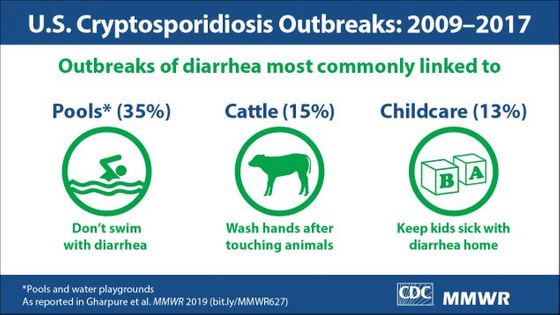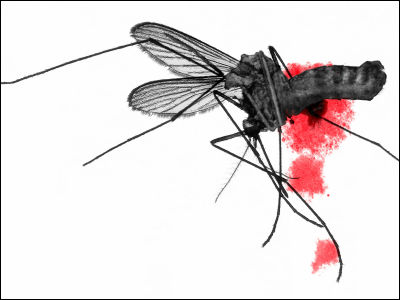Swimming in a sanitized pool can cause infection with pathogenic parasites

by
Also in the pool seemingly clean, it is bad for your health than you think have been contaminated with urine in the past of the research found we are. In addition, the Centers for Disease Control and Prevention (CDC) has warned that 'it is not the only thing that is released to the pool.'
Cryptosporidiosis Outbreaks — United States, 2009–2017 | MMWR
https://www.cdc.gov/mmwr/volumes/68/wr/mm6825a3.htm
'Crypto' warning: CDC says fecal parasite can live for days in swimming pools-CNN
https://edition.cnn.com/20019/06/30/health/crypto-outbreaks-pools-cdc-warning/index.html
Hard-to-kill poop parasites that lurk in swimming pools on the rise, CDC warns | Ars Technica
https://arstechnica.com/science/2019/07/hard-to-kill-poop-parasites-that-lurk-in-swimming-pools-on-the-rise-cdc-warns/
“A total of 444 cryptosporidium infections have been reported in more than 40 states of the United States and Puerto Rico , which is an autonomous federal district, from 2009 to 2017. It is announced that 7465 people will rise.
Cryptosporidium is a type of protozoa that uses a wide range of vertebrates as its host, and infects humans through the fecal-oral route that is transmitted from the mouth via feces . The most common route of infection with Cryptosporidium is the pool, and about a third of the total was from recreational water including the pool.

When a person is infested with this
Another complication is that cryptosporidium is highly resistant to chlorine. It is possible to survive for up to 7 days in a properly chlorinated pool. According to a survey conducted by the CDC in 2013, it was also found that 58% of the water collected from the public pool was contaminated with human faeces. 'Please do not enter.'

by monkeybusiness
In addition to infection by water such as pool, it is reported by CDC investigation that there are 86 cases of infection by contact with animals and 57 cases of infection by child care. It is thought that child-rearing infections are second only to animal infections because people in child-rearing have many opportunities to contact the excreta of children who have been infected with Cryptosporidium by changing diapers.
The CDC states that 'Monthly cryptosporidium was the most common in July and August,' calling for the need to be especially aware of infectious disease measures in the hot season.
Related Posts:
in Science, Posted by log1l_ks







